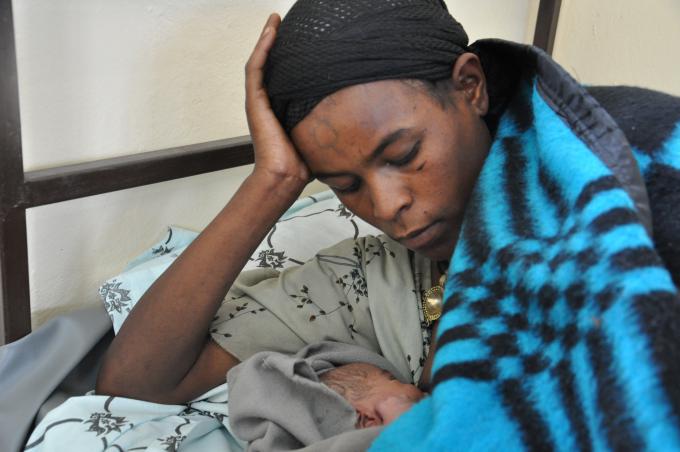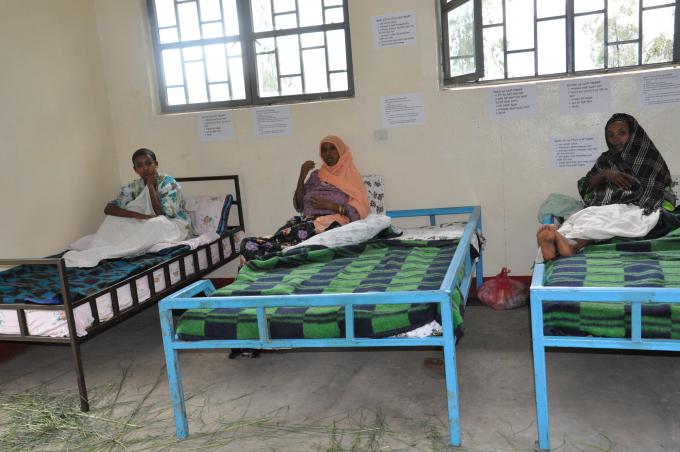Save the Children constructed three maternity waiting rooms in North Gonder Zone
The Improving Maternal and Child Health Care in Amhara Region project is a four-year program supported by the Australian Department of Foreign Affairs and Trade. One of its objectives to improve access to quality maternal and child health services, the project constructed three maternity waiting rooms in the Wogera, Dabat, and Debark Woredas.
The purpose of maternity waiting rooms is to provide a temporary shelter to women during the final weeks of their pregnancy near a health center with basic emergency obstetric and newborn (BEmONC) facilities. It can also serve as a center for providing education and counseling.
The health centers have poor road conditions and topography that has significant impact on women delay in reaching the health facilities at the time of emergency obstetric conditions. Belaynesh Kebede, a midwife at the Dib Bahir health center, said “the construction of the waiting room will improve the access to quality maternal and child health services. As the time of delivery approaches, pregnant mothers travel a long distance to come to the health center. However, they had to return home when it is a false labor, as we did not have a place to stay. It was one of the reasons for high number of home delivery or low facility delivery. But now thanks to Save the Children, we have a waiting room that will enable me to let mothers stay before and after delivery.”
The project also provided training on basic emergency obstetric and newborn care (BEmoNC) for midwives and supported the health centers with basic medical and non-medical equipment and supplies including delivery tables, vacuum extraction, manual vacuum aspiration set (MVA), neonatal resuscitation devices, and infection prevention supplies.
Moreover, the project local partners have trained female health development army (HDAs) members to lead Mothers’ Support Groups (MSGs). MSGs help pregnant women with education, registration, and referrals to the closest health center for antenatal, delivery and postnatal care services. A radio-education intervention to improve maternal and child health knowledge and seeking behaviors is also taking place in the Woredas, supported by the project.
 Ethiopia
Ethiopia 
